My speech at the presentation of the Chinese edition of my book “China in the 21st century. The Awakening of a Giant”, held in Beijing on July 31, 2023:
Interestingly, my first contact to China, when I was still a child, was through books. I never knew why, I never asked my father how he got children’s books about China in Venezuela in the 1960s. The truth is that from an early age I began to know this distant country where people had slanted eyes and there were some beautiful black and white bears that had halos around their eyes and ears, also black, and a face of melancholic sadness and innocence.
Years later, almost when entering adolescence and I was already understanding some basic political issues, my father spoke to me with admiration of that country governed by the communist party and where a process of profound social transformation was taking place. The names of Mao Zedong, Zhou Enlai, and Zhu De, among others, became familiar to me.
Many years passed, until already at the university those memories began to become a reason for professional and political interest. Luckily, I understood very early on (in the 1990s) the structural metamorphosis that the Chinese political model was undergoing as a result of the application of the policy of reform and opening up. From then on, in my undergraduate and postgraduate studies, I focused many of my works to investigate and learn about the reality of the People’s Republic of China and its projection into the future.
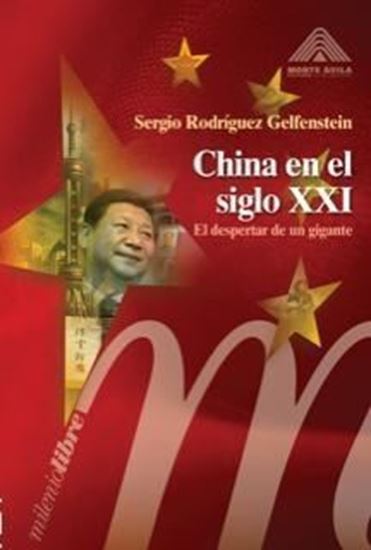
After graduating with a Bachelor’s Degree in International Studies, I immediately began teaching at the Central University of Venezuela. One of my first proposals was to start teaching a seminar on China as an optional course in the 5th grade semester, but the project was rejected by the School Council for “not being a relevant topic”.
Mexico, where I moved to work and live in 2001, was the place where I could begin to deepen my studies on China much more systematically, beginning to understand in a broader and more incisive way the dimension of what was happening and the strategic nature of what President Xi Jinping would later call the construction of the “Chinese dream”.
First trip to China
My first trip to China was in 2006. At that time I was Director of International Relations of the Ministry of the Environment of the Bolivarian Republic of Venezuela. The impact of what I saw gave rise to an interest in spreading the reality of that country that I was getting to know more than 40 years after my father enlightened my childhood with those beautiful Chinese books.
A series of events (some of them accidental) provided me the possibility of making that adventure and that dream come true. This is a book written for people who do not know anything about China or if they do, they analyze it from a perspective of Western values and philosophy which leads to wrong conclusions. The work faces the challenge of exposing China from its own perspective, which is why it uses a large bibliography of Chinese authors.
The foreword prepared by Professor Xu Shicheng, Senior Researcher at the Institute of Latin America and honorary member of the Chinese Academy of Social Sciences (whom I thank for his presence at this event) generously says the following: “This book is the result of an assiduous reading of political and philosophical literature of China, the painstaking studies of the author on the country and also the result of his visits to China and his direct contacts with the Chinese from various sectors.”
And he described the book as “…a small encyclopedia of China because it covers almost all aspects: its millennial history, its diverse philosophical foundations, its politics, its society, its diplomacy, and the process of reform and opening to the outside world that began in 1978. The reader will be able to find in it all the aspects of interest in knowing about China, above all, about its current situation”. Thank you very much Professor Xu for your foreword and for inspiring and supporting me to make this book.
Latin America and China
For Latin America, ignorance of China, a country that is geographically far away and that is building a state and a society with its own particularities, contributes to the creation of fables and myths about it. In the specific field of its international relations and foreign policy, China has been occupying an increasingly decisive space, not only in the economic and commercial sphere, but also in the political sphere. In this context, an accelerated development led it to become the second world power, which has made the United States feel its hegemony threatened, raising questions and doubts about how China intends to face its future in the 21st century. This book will try to clarify these enigmas and dilemmas through a detailed exposition about the history, philosophy and politics of China, especially those that take place beyond its borders.
The book is the final product of an investigation that collects the results of three and a half years of work that included 7 trips to China, where I had the opportunity to visit 32 large, medium and small cities in 9 provinces, 2 autonomous regions and 3 municipalities directly subordinated to the central government, that is to say, 14 administrative entities of the 34 that make up the country, traveling along around 6,360 km by land, in addition to air travel to cities as far away as Kashgar, located in the region Xinjiang Uygur Autonomous about 4 hours flight from Beijing.
Such an impressive journey allowed me to exchange with political leaders, academics, students, workers, citizens of ethnic minorities, children, public officials, small businessmen, peasants, merchants, and intellectuals, among others, which helped to have a germinal idea of this extraordinary and enigmatic country, for those of us who were born and live in the other part of the world.
Mistakes coming from the exogenous perspective
The study made it possible to understand that the West makes the mistake of trying to know and judge China from an exogenous perspective, which, being foreign to us, leads us to make fatal mistakes in the analysis, leading to false conclusions and misguided points of view when using categories, values and principles foreign to the culture, tradition and history of China.
The exchange with Chinese colleagues made me understand that just as Western philosophy and political science had their origin in the 4th and 3rd centuries BC and that from this the entire framework of Western societies was erected, a little earlier, in the 6th and 5th centuries BC, China saw its own political philosophy emerge from Confucius, Lao Tzu, Mozi, Mencius and others who shaped the framework of its state and modern society. Meanwhile, the West strives to judge China based on foreign thinking that is out of place.
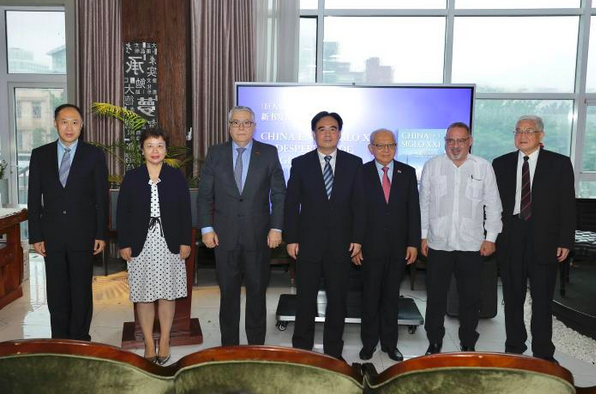
This led me to understand that we were not just talking about a different country. The analysis had to understand that we are facing a different civilization, much older than ours with all the political, cultural and social burden that such an assertion entails. Through five millennia, China has built an uninterrupted work that manifests itself in all areas of life, shaping a way of being, a way of thinking and a way of acting, different from ours.
In all the learning that writing this book meant, there is an element that, at its conclusion, must be considered as essential for the study, knowledge and understanding of this civilization. It is the notion of time understood in philosophical terms. From my point of view, therein lie the deep differences we have with China. In the West, time is finite, it ends with life. We grant the works that we undertake validity if we see them finished. In China, time is infinite because it continues with the descendants. That allows them to see everything from a different temporal dimension and gives them the possibility of designing plans and projects (the change of society between them) in the very long term.
Starting with a 5000-years-old history
I want to confess that when I began to delve into this intricacy, I realized that the initial objective, which was to study Chinese foreign policy, forced me to know politics in general, and knowing the politics of this country exposed the imperative of taking a look at its history and its ancient philosophy. Only in this way was it possible to discover guidelines that would provide elements of analysis of the current reality.
Therefore, I faced the task of shackling 5,000 years of history into a small number of pages, knowing that I was not writing a Chinese history book, but only extracting events that occurred up to 1978 that have an influence and presence in China today. The same happened with the second chapter dedicated to gathering as many philosophical elements as possible that over time shaped the synthesis of Chinese thought and that currently come together in the construction of what could be called the Chinese doctrine of the 21st century.
Only then was it possible to deal with Chinese politics, first from 1978 when the reform and opening led by Deng Xiaoping began, and then, from 2012 when Xi Jinping was elected General Secretary of the Communist Party of China at the 18th Congress of the organization, marking -from my point of view- a turning point that allows projecting the path that has been made for the country to fulfill the “Chinese dream” that is its development proposal for the 21st century.
Finally, I was able to undertake the study of China’s foreign policy in three stages: from the creation of New China in 1949 to 1978, from that year to 2012, and from then until now and the projection for the 21st century.
Destiniy of the book’s Latin American editions
The Venezuelan edition of this book, published by Monte Ávila Editores, was presented during the Venezuelan Book Fair in November 2019 – in which China was the guest country – by the then Minister of Foreign Affairs Jorge Arreaza. It became the best-selling book in the country in 2020.
Likewise, the Argentine edition prepared by Ediciones Fabro was presented in Buenos Aires in the same month of November 2019 with the presence of Jorge Taiana, former Foreign Minister and current Minister of Defense of Argentina.
In the same way, it has editions in Peru of the Kinko’s publishing house, in Mexico by Editorial Entre Tejas (digital and paper edition), in Chile (digital edition published by Editorial Estrofas del Sur). The Dominican Republic edition (Editorial Argumentos) had the support of the Embassy of the People’s Republic of China and was used by the ambassador (in a special print) as a courtesy gift for the main authorities of that country. The Panamanian edition saw the light of day in December 2021, thanks to the support of the Chinese Embassy in a presentation ceremony that had the direct participation of the Chinese Ambassador in Panama. This year, in March, the Puerto Rican edition for that country and the United States was published by Editorial Mágica.
Now we present the beautiful Chinese edition (updated and corrected) of print prepared by Editorial Nueva Estrella, a publisher attached to China International Communication Group (CICG). I thank its workers, the authorities and very especially Mrs. Jiang Shan for the effort and dedication to make this publication possible.
I also thank the People’s Daily of China, in particular to its correspondents in Venezuela, and the University of Shanghai for the invaluable support for the research that made it possible to write this book.
Much could be said about China and this book, but if one tries to summarize it in a few words, it may be permissible to resort to its final lines: “You may or may not agree with the political and ideological principles of China, or with its model of society and economy, but no one can doubt that it is establishing a new pattern of conduct for a power on the international stage. This behavior comes from its history and its ancient philosophy, it points to a new route in fusion with Marxism-Leninism that allowed the design of a model of socialist society with its own characteristics. The peoples of the planet must study and learn about this grandiose experiment carried out in the second most populous country and one of the largest in the world to implement their own policies for their relationship with China, especially when we are facing the country that will undoubtedly be the next greatest world power.
Thank you so much.







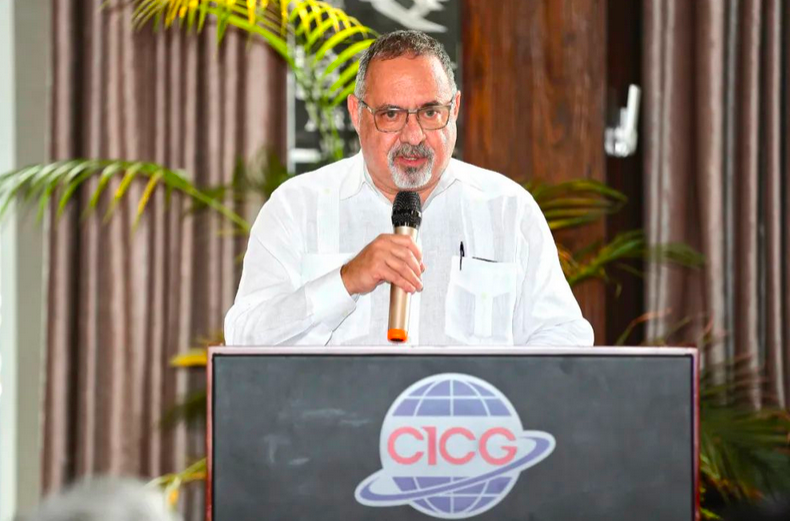




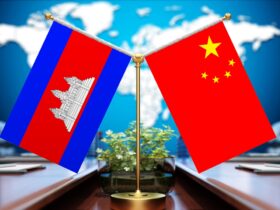

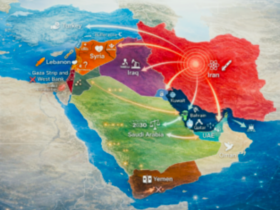
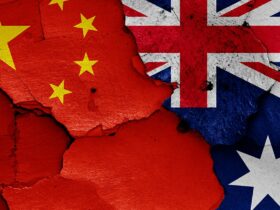

Leave a Reply